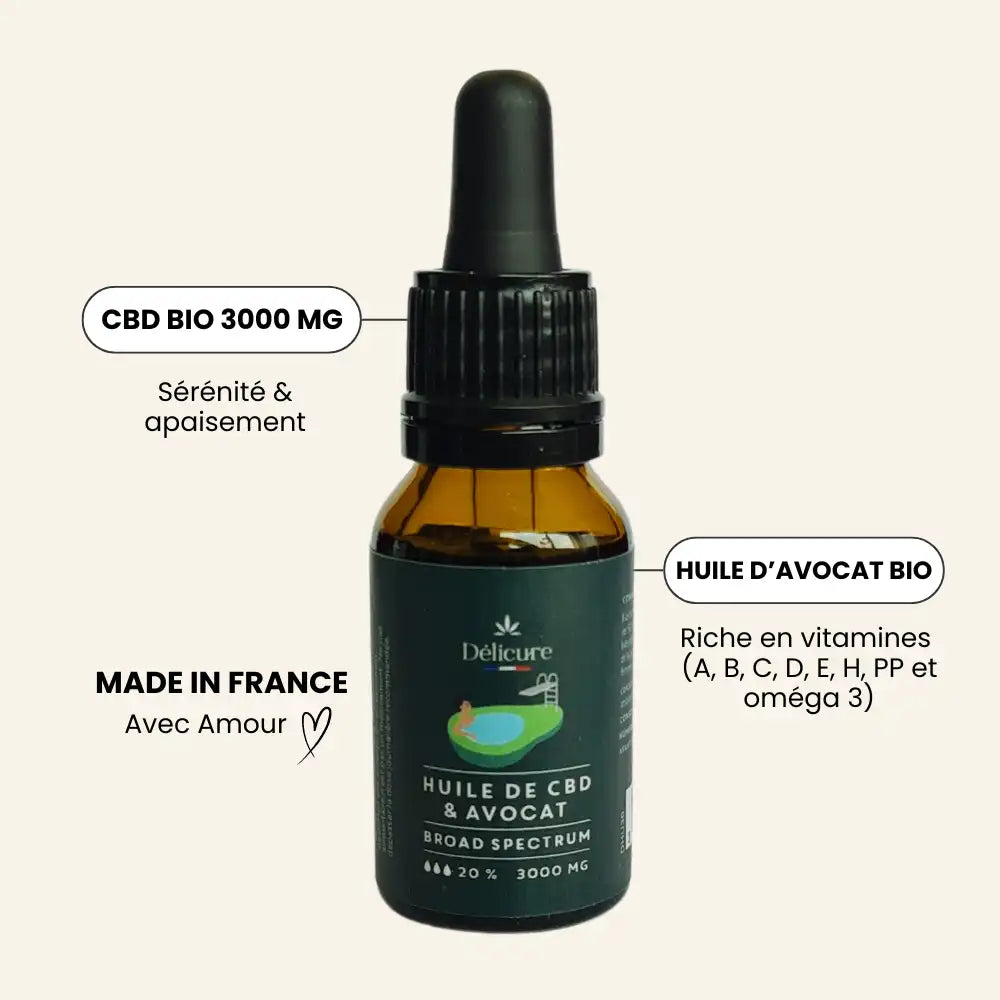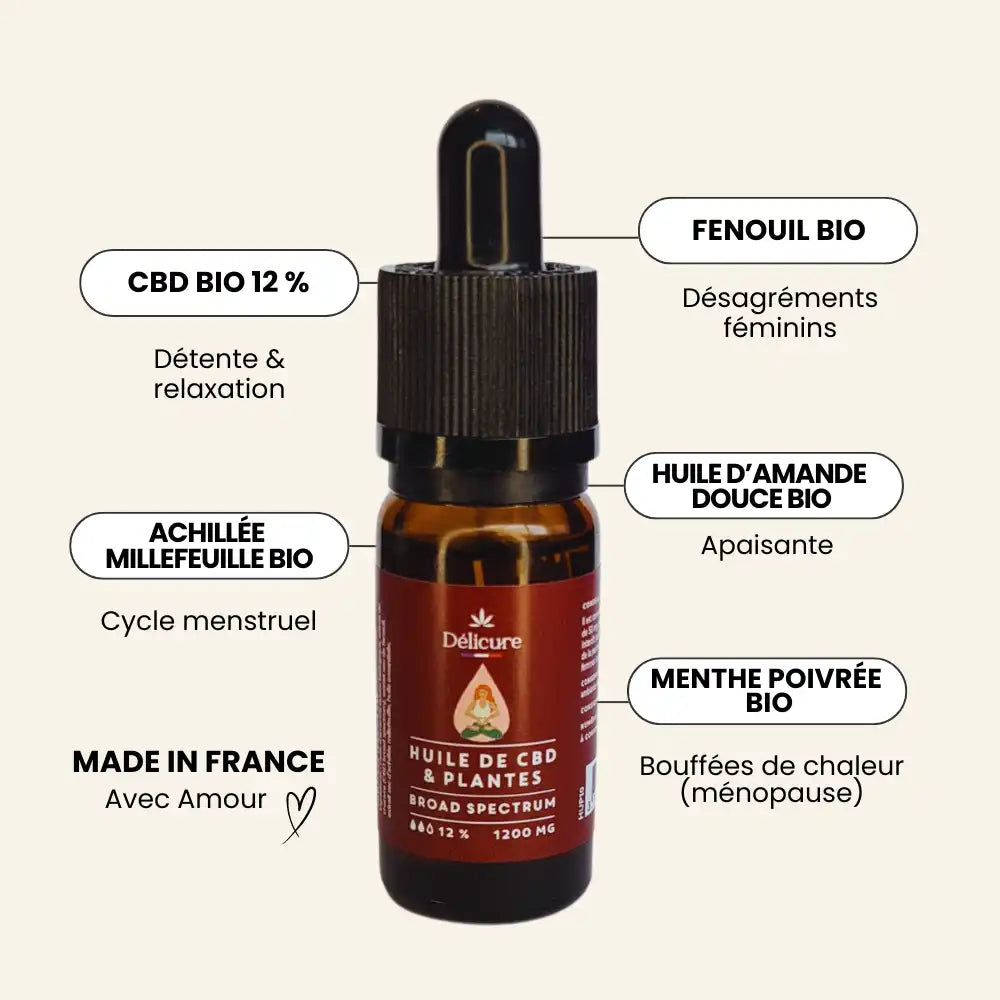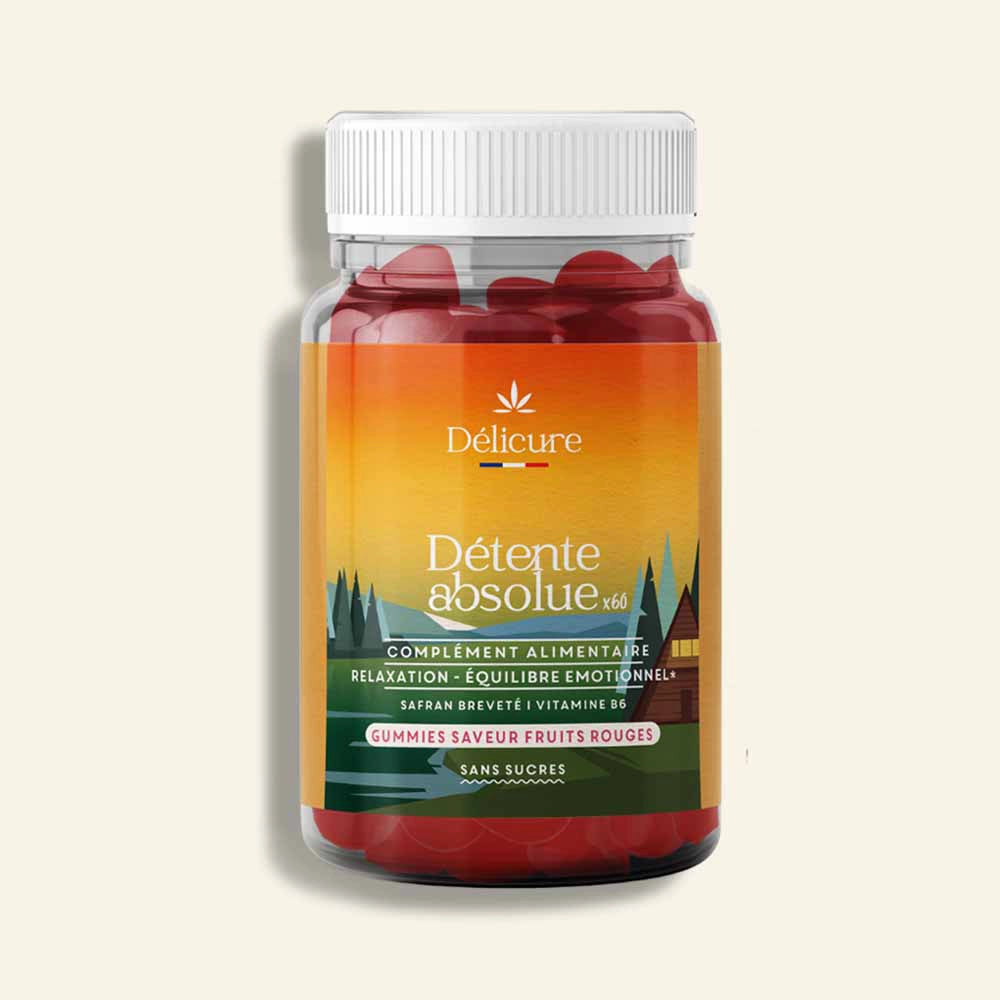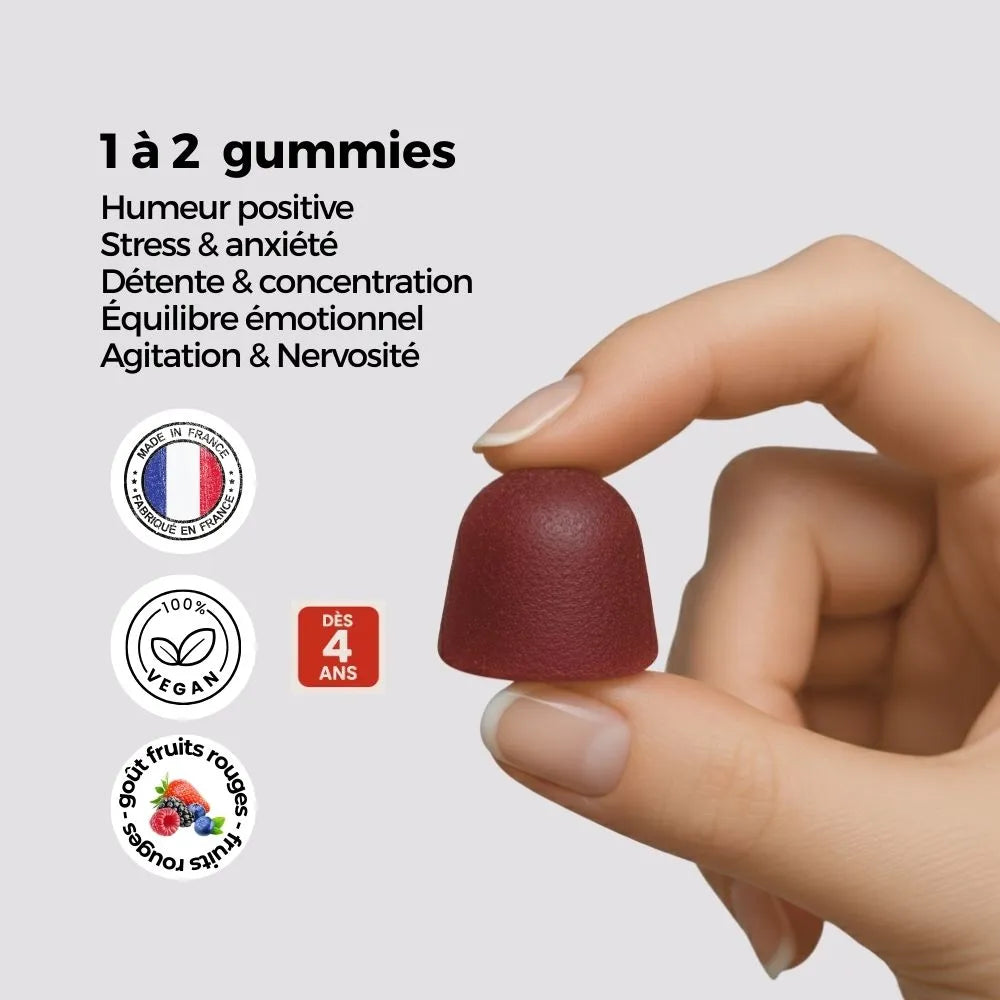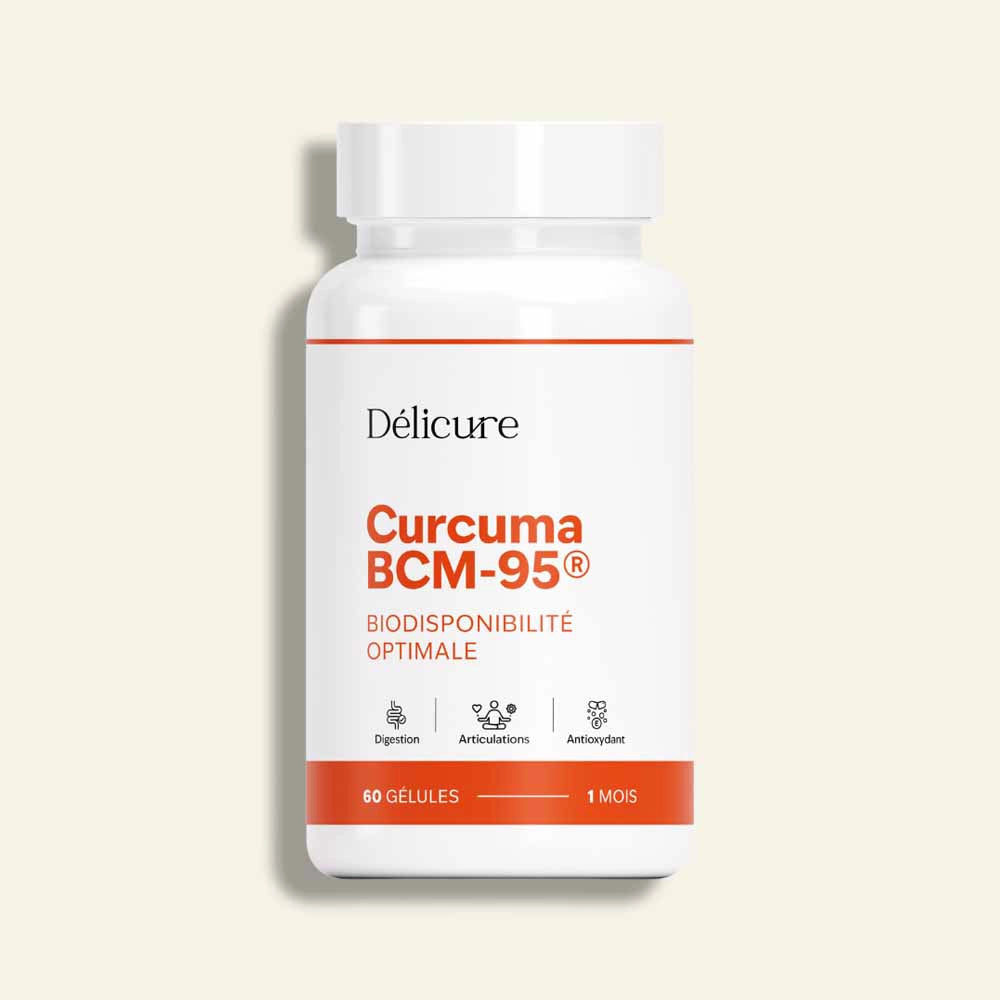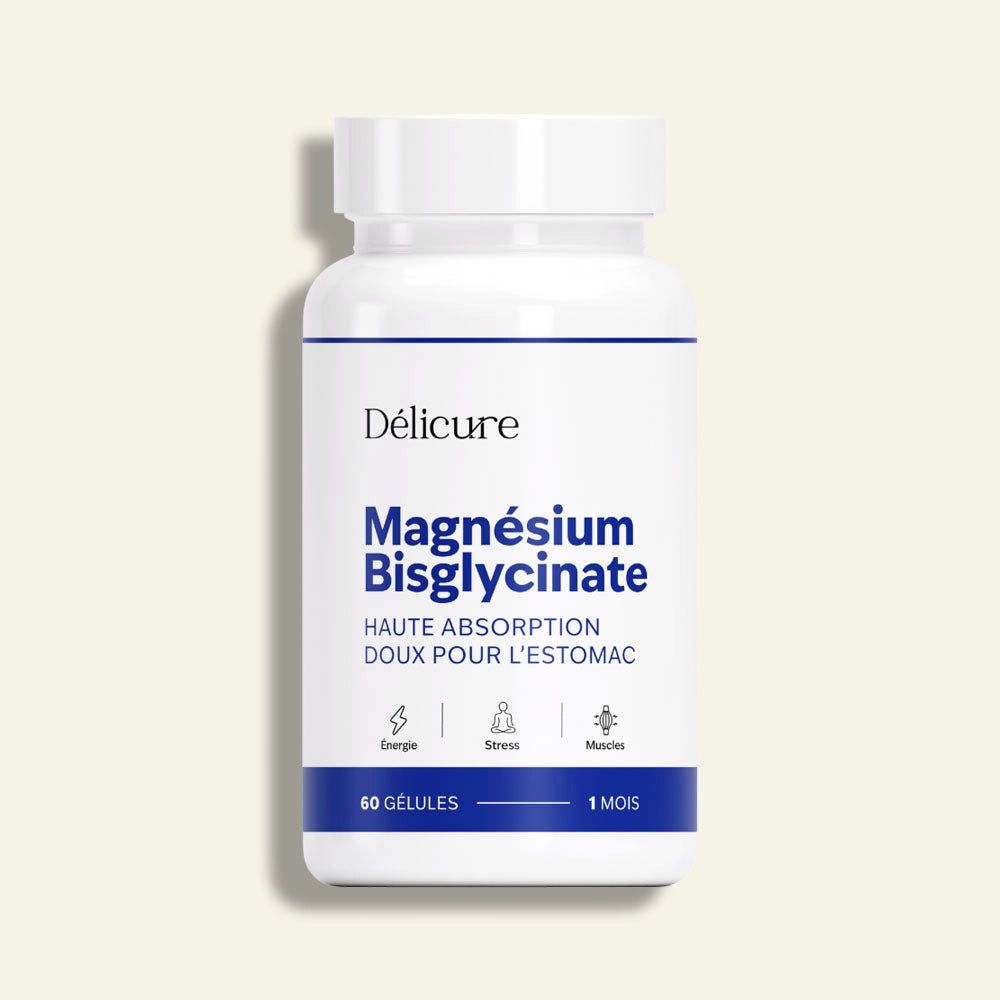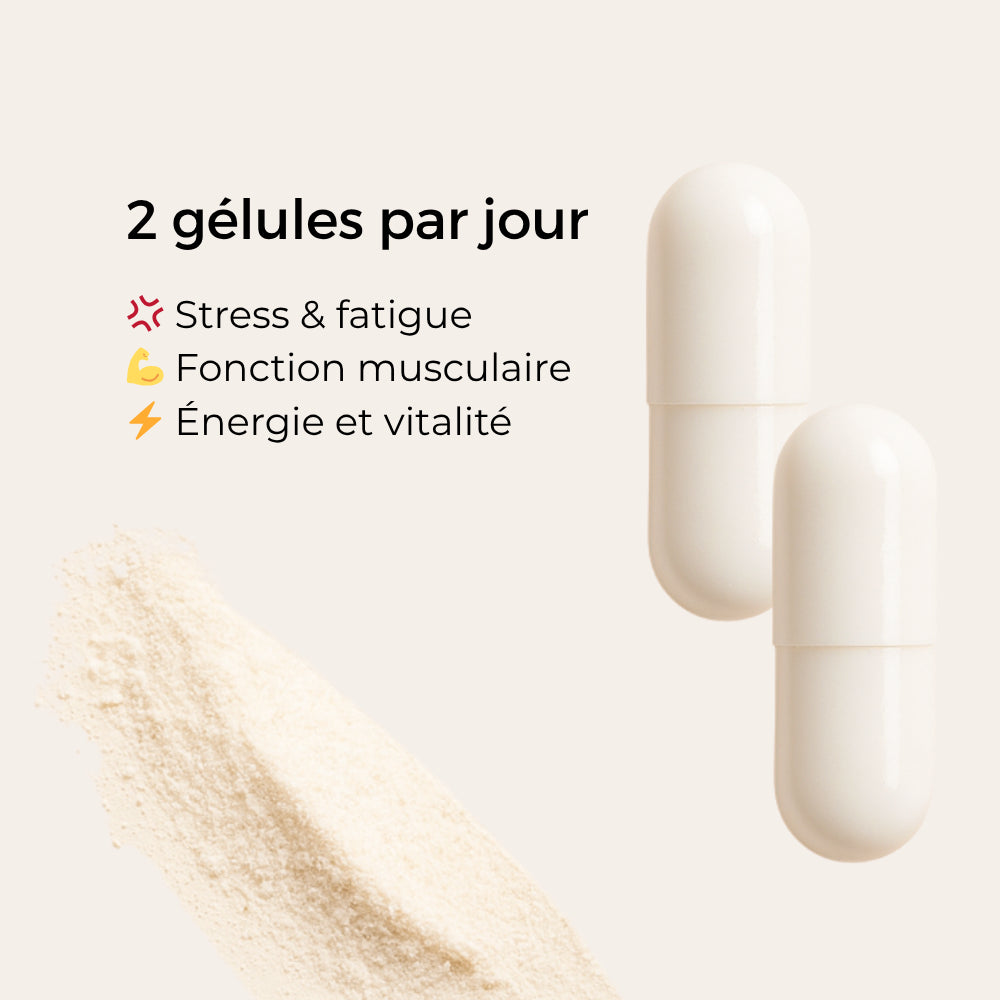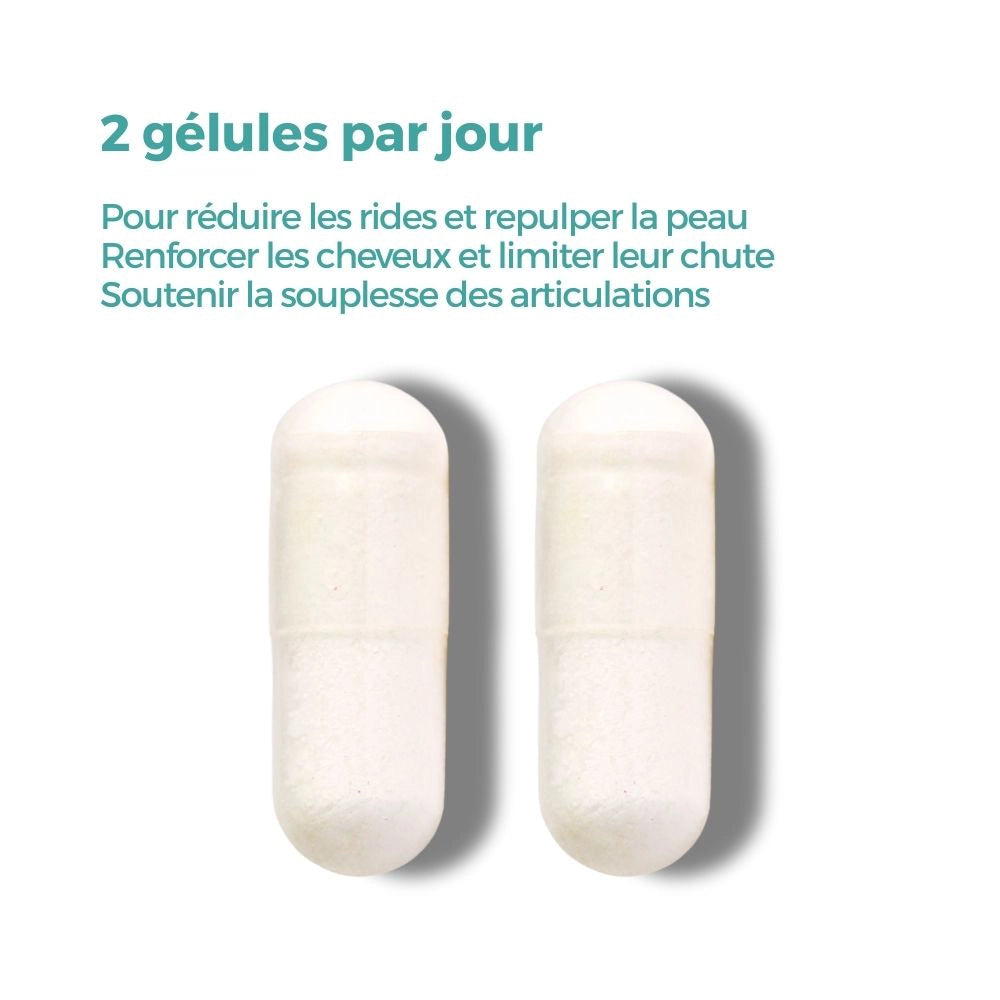
Saffron, the spice of well-being: how does it balance our mood and soothe our stress?
Saffron, nicknamed "red gold," has been known since antiquity for its exceptional value. Beyond its rarity and high cost, it has, for several years now, been generating considerable interest for its wellness benefits, particularly its ability to alleviate stress , mild depression , and mood disorders . At the crossroads of tradition and modern science, this age-old ingredient is proving to be a valuable ally in restoring emotional balance and promoting a better quality of life. In this article, we will explore the mechanisms of action of saffron's main active compounds, supported by recent clinical studies, and see why it fully deserves its reputation as a "treasure for body and mind."
1. A brief history of saffron and its use for well-being
The cultivation of saffron (Crocus sativus) dates back nearly 3,000 years, particularly in Persia (modern-day Iran), considered the cradle of this spice. From antiquity, it was used in various preparations for its effects on serenity , joy , and sleep quality . Ancient texts mention the use of saffron to calm the mind and dispel melancholy. Cleopatra, famous for her pursuit of beauty and well-being, used it in her renowned aromatic preparation called "kyphi," known for promoting relaxation, soothing daily tensions, and inducing restful sleep .
Today, thanks to advances in science, these benefits are increasingly being verified by clinical studies . Researchers are particularly interested in the active compounds in saffron – safranal , crocin , picrocrocin , and other metabolites – which work together to produce positive effects on mood and stress management .

2. The main active compounds of saffron and their roles
Saffron owes its red color, captivating aroma, and therapeutic properties to several bioactive compounds. Among them:
- Safranal
-
What is this ?
It is a volatile monoterpene aldehyde , responsible for the characteristic odor of saffron. -
Mechanism of action
Safranal is known to act as a serotonin enhancer , playing a role similar to SSRIs (Selective Serotonin Reuptake Inhibitors) . Specifically, it increases the availability of serotonin in the synaptic cleft, thus promoting the transmission of this neurotransmitter, often called the "happiness hormone." -
Proven benefits
In a clinical study using an oil rich in safranal, a relaxing effect and a significant reduction in cortisol were observed in women after only 20 minutes of exposure. Since cortisol is the stress hormone, its reduction contributes to improved emotional balance and a sense of well-being.
- Crocin
-
What is this ?
Carotenoid pigment responsible for the red color of saffron. -
Mechanism of action
Crocin has antioxidant properties and also affects serotonin regulation . Some studies show that it potentiates the effects of certain SSRI antidepressant medications, such as fluoxetine . -
Proven benefits
Clinical trials have shown that crocin supplementation (30 mg/day) can improve mood and reduce symptoms of depression as early as the first week. On the Beck Depression Inventory (BDI), participants receiving crocin saw their scores decrease more rapidly than those in the placebo group.
- Picrocrocine
-
What is this ?
A monoterpene glycoside responsible for the slightly bitter note of saffron. -
Mechanism of action
Picrocrocin is considered a precursor to safranal, as it is converted into safranal during digestion. Thus, it indirectly contributes to maintaining sufficient levels of safranal in the body. -
Benefits for well-being
By enhancing the activity of safranal, picrocrocin supports relaxation mechanisms and contributes to the restoration of emotional balance .
- Other metabolites : crocetin (a precursor of crocin) and kaempferol (a flavonoid) are also recognized for their anxiolytic effect in preclinical studies. When administered to mice, they significantly reduced their immobility in stress tests, suggesting a positive effect against anxiety .
3. How saffron affects emotional balance
3.1. The role of serotonin in mood regulation
Serotonin is a key neurotransmitter involved in regulating mood, appetite, and sleep. Insufficient serotonin levels are often associated with depression , anxiety , and chronic fatigue . The active compounds in saffron, such as safranal , promote the release of serotonin and inhibit its reuptake , thus increasing its availability in the brain. The result: an effect comparable to SSRIs, but more natural and with a reduced side effect profile .
3.2. The importance of cortisol reduction
Cortisol , often called the "stress hormone," is released in situations of tension or danger. When it remains too high over long periods, it can lead to profound fatigue, irritability, and a weakened immune system. Clinical trials have shown that exposure to a safranal-rich extract (or oral intake of standardized saffron) decreases cortisol secretion, contributing to a feeling of calm and improved stress management .
3.3. Effectiveness demonstrated by comparative studies
Several clinical trials indicate that taking 30 mg/day of saffron (standardized to safranal, crocin, or whole stigmas) improves depression scores to a similar extent as some reference medications, such as fluoxetine. On the Hamilton Depression Rating Scale (HAM-D), patients taking saffron show a significant reduction in symptoms as early as the second week of treatment, with sustained efficacy and results comparable to those of SSRI antidepressants.

4. Other areas of application for saffron in wellness
4.1. Sleep Improvement
Traditionally, saffron was used to soothe the mind and promote sleep. Today, we better understand why: by increasing serotonin , it encourages the production of melatonin , the sleep hormone. Furthermore, by reducing cortisol, saffron helps calm negative thoughts and inner turmoil that disrupt restful sleep.
4.2. Premenstrual comfort and menopause
A woman's hormonal cycle is often associated with mood swings (irritability, sadness, anxiety). Studies suggest that saffron can alleviate these symptoms , particularly in women suffering from premenstrual syndrome (PMS) or mood disorders related to menopause. Its balancing effect on neurotransmitters and its ability to regulate cortisol make it a valuable natural support during these periods of hormonal fluctuations.
4.3. Digestive and intestinal health
Stress has a direct impact on the digestive system, potentially causing bloating, abdominal pain, or bowel irregularities. By calming the central nervous system, saffron indirectly helps relieve digestive discomfort . Furthermore, patented combinations of saffron and probiotics are being developed to optimize the balance of the gut microbiota, which is essential for overall well-being.
5. Instructions for use and precautions
5.1. In what form should saffron be consumed?
- Standardized extracts : Numerous clinical studies have evaluated the efficacy of saffron extracts standardized in safranal and crocin , generally at a dosage of 30 mg per day .
- Oils rich in safranal : Ideal for relaxing inhalation or for use in a diffuser, contributing to rapid soothing.
- Infusions or dietary supplements : Capsules , ampoules , and herbal teas containing saffron are available on the market. Make sure you check the quality and the concentration of active ingredients.
5.2. Duration of intake
To see results in terms of mood and stress reduction, a course of treatment lasting several weeks is often recommended. The first improvements may appear as early as the first or second week , but the effect typically becomes stable after a month.
5.3. Precautions and contraindications
- Pregnancy and breastfeeding : Some sources recommend caution, as saffron may cause uterine contractions at high doses.
- Medical advice : If you are taking SSRI antidepressants, consult your doctor before taking saffron. It may potentiate the effects of these medications.
- Overdose : At high doses (more than 5 g per day), saffron can be toxic. However, usual therapeutic dosages (30 mg/day) never reach this threshold.

6. Why is saffron the new ally of well-being?
The growing number of clinical and preclinical studies shows that saffron acts as a true mood regulator , modulating several signaling pathways (serotonin, cortisol, inflammation, etc.). Compared to other solutions, it has the advantage of being both natural and versatile : it affects stress management , sleep quality , premenstrual comfort , and even digestive health through its soothing action.
Furthermore, its safety profile is very satisfactory, with no major side effects reported at recommended doses. This makes saffron an ingredient of choice for anyone looking to support their emotional well-being gently and naturally, whether as part of an active and stressful lifestyle or to complement supervised medical treatment.
7. A quality saffron extract for proven results:
The patented Safr'Inside™ saffron is at the heart of Delicure 's vegan and sugar-free stress gummies , designed to offer one of the most effective solutions on the market. Thanks to the patented encapsulation technique (Tech'Care extraction™) , this unique saffron preserves all of its active compounds, including safranal , crocin , and picrocrocin , giving it a concentration of active ingredients up to ten times higher than other saffron extracts. Several clinical studies—including a double-blind trial on 56 adults—have demonstrated its rapid effectiveness in stress management (within 30 minutes), as well as its positive effect on mood after a two-month course. Combined with vitamin B6 , an essential cofactor for the synthesis of key neurotransmitters (serotonin, GABA), this patented saffron works synergistically to regulate cortisol , promote relaxation, and contribute to lasting emotional balance . Délicure has thus formulated healthy and effective saffron gummies , respectful of the environment (vegan) and of the figure (sugar-free), which stand out for their clinically proven effectiveness in helping everyone to find calm, serenity and good humor on a daily basis.
8. In conclusion
Saffron, long considered a mere luxury spice, is now emerging as a major player in health and nutrition thanks to its recognized effects on mood regulation , stress reduction , and emotional support . Its active compounds—safranal, crocin, picrocrocin, and crocetin—work synergistically to boost serotonin , lower cortisol levels , and soothe anxiety. Saffron has also proven effective in treating attention deficit disorders such as ADHD . Comparative studies with leading antidepressants, such as fluoxetine, demonstrate the clinical efficacy of a standardized dose of 30 mg per day .
Beyond its mood-enhancing benefits, saffron promotes better sleep , relieves premenstrual discomfort , and contributes to good digestive health when combined with a healthy lifestyle. Its gentle and gradual action makes it an increasingly popular natural solution, both for people suffering from mood disorders and for those simply looking to prevent or alleviate the effects of daily stress.
If you wish to incorporate saffron into your health routine and explore the many benefits of this ancient spice , always be sure to choose high-quality saffron, ideally certified and standardized in active ingredients. Saffron used in a dietary supplement will not be the same as that used for cooking. Follow the recommended dosages and, if you have any doubts or are currently taking medication, do not hesitate to consult a healthcare professional. You will then discover why, for centuries, saffron has been believed to bring joy and serenity to our daily lives. One more reason to adopt this "red gold" as a faithful ally on the path to well-being .












